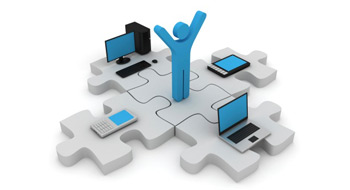

Digital health technology is growing in popularity, as a new survey has found that almost half (47%) of adults in the UK would be happy to be diagnosed remotely rather than face-t0-face with a doctor.
Aviva’s latest Health Check UK report found that the growing appetite for digital health technology, which includes wearable health monitors, health advice mobile apps and video consultations with doctors, could help alleviate the pressure on the UK’s stretched healthcare services.
According to the survey, 67% of UK adults said they would be happy for a long-term medical condition, such as diabetes or heart disease, to be managed through remote digital monitoring.
More than half (57%) of respondents believe that digital health technology could improve their health or well-being, and 63% of all age groups using a physical activity monitor say it has improved their health.
“As mobile apps and healthcare technology integrate into everyday life, growing numbers are willing to put their trust in digital help or diagnosis,” said Dr. Doug Wright, medical director for Aviva UK Health, in a press release.
“Using technology to identify common illnesses or help manage a long-term condition can remove the need for a face-to-face GP appointment, alleviating pressure on doctors and freeing up time for more urgent health matters.”
Although 63% of respondents to the survey said they use the internet to access information about health and well-being, a growing number are turning to mobile apps, such as nutrition trackers, medication reminders and physical activity trackers.
Some 15% of respondents use a physical activity tracker app and 46% would do so in the future, while 9% use a nutrition or diet tracker app and 38% are open to doing so.
“Technology can also aid proactive health management, allowing us to track and improve our health to avoid developing certain conditions in the first place,” says Dr. Wright.
“As well as using technology for entertainment and social media, people could be using it to get a greater understanding and control of their health and fitness.”
